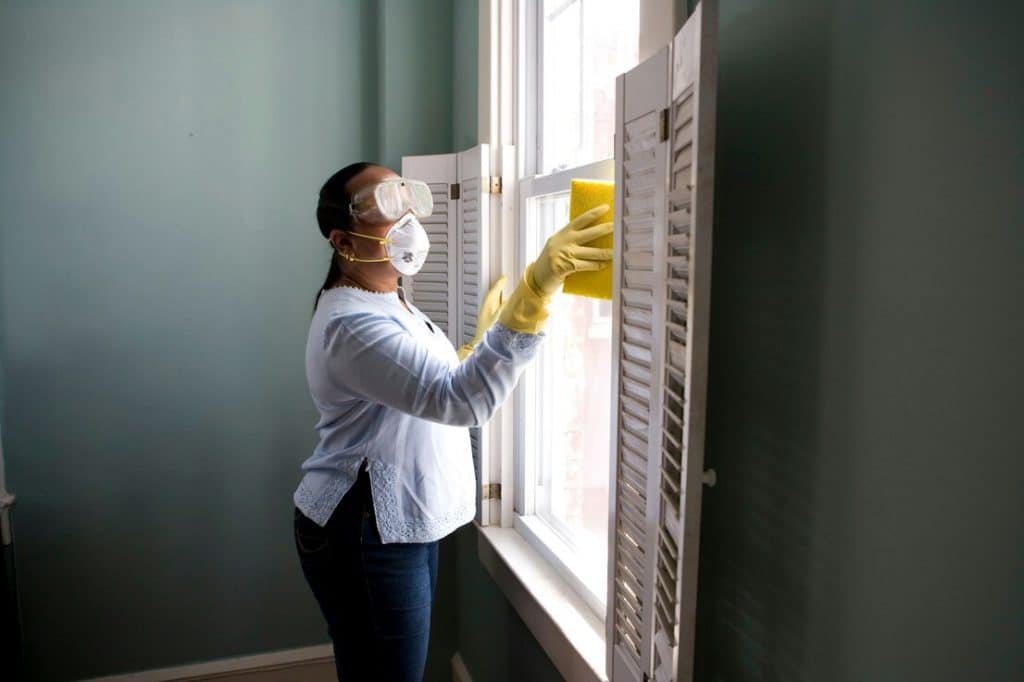Introduction to CRM-Integrated Cleaning Management Software
In 2025, the cleaning industry is experiencing a transformative shift with the integration of Customer Relationship Management (CRM) into cleaning management software. This innovative technology amalgamation is streamlining operations, improving customer interactions, and significantly enhancing client retention. By leveraging CRM features within their cleaning management systems, companies can now efficiently manage client data, interactions, and feedback. This not only optimizes service delivery but also cultivates long-term client relationships through personalized and responsive service experiences.
Understanding CRM in the Cleaning Industry

Image courtesy: Unsplash
In the cleaning industry, maintaining strong relationships with clients is not just beneficial—it’s essential for survival and growth. Customer Relationship Management (CRM) systems are at the forefront of this endeavor, helping cleaning businesses manage and maintain client relationships more effectively and efficiently.
Definition and Importance of CRM
CRM, or Customer Relationship Management, refers to the strategies and technologies that companies use to manage and analyze customer interactions and data throughout the customer lifecycle. The goal is simple: improve business relationships, aid in customer retention, and drive sales growth. CRM systems compile data from a range of different communication channels, including a company’s website, phone, email, live chat, marketing materials, and social media. By conducting a thorough analysis, these systems provide businesses with detailed insights into customer behavior, helping them tailor services and communications to enhance satisfaction and loyalty.
In the cleaning industry specifically, CRM systems can revolutionize how businesses understand and interact with their clients. They enable companies to track customer interactions and preferences, thereby allowing for more personalized service offerings. With cleaning companies often juggling numerous clients with varying needs and preferences, a CRM system becomes indispensable for maintaining high levels of satisfaction and fostering long-term client relationships.
Key Features of CRM Integration
CRM integration in cleaning management software merges customer relationship management functionalities directly into existing cleaning company frameworks. This integration unlocks a suite of features tailored to enhance operational efficiencies and client interaction capabilities:
– Contact and Account Management: Stores detailed client contact information and history, making it easy to access information and understand client needs and preferences at a glance.
– Sales and Service Automation: Automates routine tasks such as scheduling, billing, and service tracking, allowing more time for customer engagement and satisfaction measures.
– Reporting and Analytics: Provides powerful insights into customer behavior and service performance, enabling data-driven decision-making to optimize service delivery and customer satisfaction.
– Workflow Optimization: Streamlines internal operations and aligns them with customer expectations and requirements, ensuring timely and effective service delivery.
Trends in CRM-Integrated Software for 2025
As we look toward 2025, several emerging trends stand out in the realm of CRM-integrated software tailored for the cleaning industry. These trends promise to reshape how cleaning businesses operate and engage with their clientele.
1. AI and Machine Learning: The integration of artificial intelligence and machine learning into CRM systems offers predictive analytics and behavior insights, helping businesses predict customer needs and personalize services proactively.
2. Enhanced Mobile Access: With the omnipresence of mobile technology, CRM systems increasingly focus on seamless mobile access, allowing cleaning professionals to manage client interactions and service requests on-the-go.
3. IoT Integration: The Internet of Things (IoT) enables connectivity between devices used in cleaning, feeding real-time data back into the CRM system to update schedules and detect service needs automatically.
4. Omnichannel Communication: In 2025, CRM systems will continue enhancing omnichannel communication capabilities, integrating email, SMS, social media, and other platforms for cohesive and consistent client communication.
5. Data Security and Privacy: As data becomes more integral to operations, robust security and compliance features are expected to be central to CRM systems to protect client information and maintain trust.
Enhancing Client Retention with CRM Software
The benefits of CRM-integrated cleaning management software are numerous, but most notably, they offer a powerful tool for enhancing client retention. By providing tailored services, facilitating efficient communication, and optimizing service delivery, CRM systems help create a customer-focused operation that fosters loyalty and satisfaction.
Tailored Customer Experiences
Personalization is a key driver of client satisfaction and retention in any industry. In the cleaning sector, delivering tailored experiences can differentiate a business from its competitors. CRM systems collect detailed data on client preferences and patterns, enabling cleaning companies to customize their offerings accordingly.
For example, cleaning services can be adjusted based on a client’s previous feedback, preferred scheduling times, or specific service preferences. Additionally, specialized offers or discounts can be tailored to individual clients, showing appreciation for their loyalty and further cementing the relationship. As client data is continuously analyzed, CRM systems can also identify opportunities for upselling or cross-selling services that better meet a customer’s evolving needs.
Efficient Communication Channels
Effective communication is critical in building and maintaining strong client relationships. CRM-integrated software in the cleaning industry provides businesses with a range of tools to enhance communication with their clients.
– Automated Messages: Appointment reminders, service confirmations, and follow-up messages can be automated, ensuring timely and consistent communication without the need for manual intervention.
– Feedback Mechanisms: CRM systems can also facilitate direct communication channels for clients to provide feedback, enabling quick response to any issues or suggestions and demonstrating a company’s commitment to client satisfaction.
– Unified Communication Platforms: By integrating various communication platforms, CRM software ensures that all client interactions are logged and accessible, allowing for seamless transitions and an ongoing dialogue regardless of the communication channel used.
Streamlined Service Management
Efficient service management is another crucial aspect of client retention. CRM-integrated cleaning management software streamlines operations by automating many of the back-end processes that ensure services are delivered timely and as expected.
– Scheduling and Dispatching: Automated scheduling and dispatch increases efficiency by ensuring the right team and resources are in place for each job, minimizing delays and client inconvenience.
– Inventory and Resource Management: Real-time tracking of inventory and resources ensures that the necessary supplies are always available for scheduled cleaning sessions, preventing service interruptions.
– Performance Monitoring: Continuous monitoring of service delivery and performance through CRM analytics ensures clients receive consistently high-quality service. It also allows for the identification of improvement areas, keeping the service quality aligned with client expectations.
Incorporating CRM technologies into cleaning management frameworks advances a company’s ability to not only meet but exceed client expectations. These enhancements support higher standards of service delivery, seamless and effective communication, and strategic personalization of client interactions—all of which are crucial for retaining clients and establishing long-term partnerships. As the cleaning industry evolves towards 2025, businesses adopting CRM-integrated solutions will likely position themselves ahead of the competition, offering superior service and building stronger, lasting relationships with their clients.
Real-World Applications and Case Studies
In the rapidly evolving cleaning industry, the adoption of CRM-integrated cleaning management software is no longer a mere option—it’s a business imperative. Through a combination of technology innovation and strategic foresight, businesses are reaping significant benefits, particularly in the arena of client retention. This section delves into real-world applications and case studies, showcasing how these tools contribute to long-term success.
Case Study: Success Stories in the Cleaning Industry
One compelling case study involves a mid-sized commercial cleaning company that implemented CRM-integrated cleaning management software to streamline operations. Prior to implementation, the company faced common challenges—inefficient scheduling, fragmented communications, and low client retention rates. However, post-implementation, they witnessed transformative results.
– Enhanced Communication: The CRM solution provided a centralized platform for all customer interactions, ensuring consistent and personalized communication, which significantly improved customer satisfaction.
– Improved Scheduling Efficiency: The software enabled the automation of scheduling and task assignments, reducing human error and ensuring optimal resource allocation. This efficiency led to a 20% increase in operational productivity.
– Data-Driven Decision Making: With access to comprehensive client data, the company could tailor their offerings and services, adapting to client needs swiftly and decisively. This data-centric approach resulted in a 15% increase in client retention within the first year.
– Customer Feedback Loop: The integration facilitated seamless collection of customer feedback, which the company used to make continuous improvements, enhancing the client experience and fostering loyalty.
This company’s story is a testament to how CRM-integrated cleaning management software can redefine client engagement and retention in the cleaning industry.
Lessons Learned from CRM Implementation
The journey to successful CRM integration offers valuable lessons for other companies in the cleaning sector. Here are some key takeaways:
– Start with a Clear Strategy: Define clear goals and objectives before deployment. This ensures that the CRM system aligns with business needs and delivers maximum value.
– Invest in Training: Equip staff with the necessary skills to leverage the CRM system effectively. Comprehensive training sessions are essential to ensure the full potential of the software is realized.
– Prioritize Customer Experience: Beyond operational efficiency, a CRM tool must improve the customer experience. Features such as personalized communication, reliable service delivery, and responsive support are critical.
– Utilize Analytics: Harness the power of data analytics to gain insights into client behaviors and preferences. This empowers companies to make proactive adjustments that bolster client satisfaction and retention.
– Continuous Improvement: Implement an iterative approach where customer feedback is continually collected and acted upon, ensuring the service is always aligned with client expectations.
These lessons underscore the importance of a strategic approach to CRM implementation, highlighting how thoughtful execution can dramatically uplift business outcomes.
Future Projections for Client Retention
As the cleaning industry moves towards 2025, several trends are poised to impact client retention strategies significantly. These projections highlight the ongoing role of CRM-integrated software in achieving sustainable growth.
– Increased Personalization: With advancements in AI and machine learning, CRM systems will become even more adept at personalizing client interactions. This will lead to stronger client relationships and higher retention rates.
– Integrated Smart Technologies: IoT devices and smart sensors will further integrate with CRM systems, providing real-time data that enhances operational efficiency and allows for more responsive client service.
– Sustainability Focus: As environmental concerns grow, CRM systems will help companies track and report on sustainability metrics, a factor increasingly important to clients. This transparency will strengthen trust and retention.
– Omnichannel Engagement: Clients will expect seamless experiences across all communication channels. CRM systems will evolve to manage and optimize these interactions, ensuring consistent and quality service delivery.
– Predictive Analytics: Predictive analytics will allow companies to anticipate client needs and proactively offer solutions, thereby reducing churn before it happens.
In conclusion, as we approach 2025, the capabilities of CRM-integrated cleaning management software will continue to expand, playing a pivotal role in developing robust client retention strategies. Businesses that adopt and adapt to these technological advancements will not only retain clients more effectively but also establish themselves as leaders in the cleaning industry.
Conclusion
As we look ahead to 2025, CRM-integrated cleaning management software proves to be a game-changer for businesses in the cleaning industry. By enhancing client interactions, streamlining operations, and providing valuable insights into customer preferences, such systems significantly drive client retention. Companies adopting these solutions can expect to build stronger relationships with their clients. In doing so, they foster a reputation for reliability and excellence—core components in maintaining a competitive edge in an ever-evolving marketplace.













